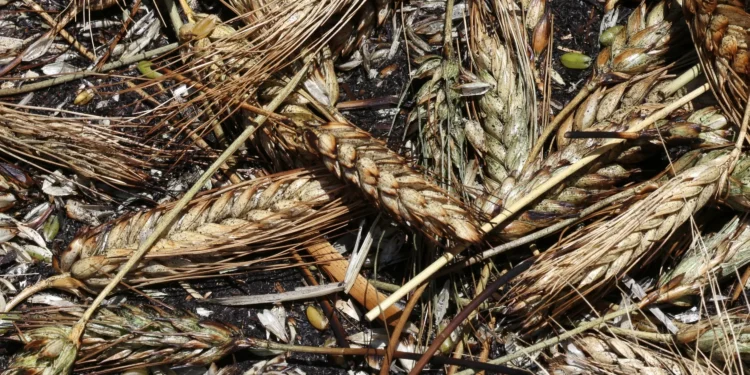Sayed Azam-Ali is a name that is synonymous with food security and nutrition. As a member of the United Nations High-Level Experts Panel on Food Security and Nutrition and the Chief Executive Officer at Crops for the Future, he has dedicated his life to finding solutions to the global challenges of hunger and malnutrition. His expertise and insights have made him a respected figure in the world of agriculture and food systems. In a recent interview, he shared his thoughts on the current state of food security and nutrition, and the steps that need to be taken to ensure a sustainable future for all.
One of the key issues that Sayed Azam-Ali addressed was the increasing population and its impact on food security. With the world’s population projected to reach 9.7 billion by 2050, the demand for food is set to rise significantly. This presents a major challenge, as current food production systems are already struggling to meet the needs of the existing population. Sayed Azam-Ali emphasized the need for a shift towards sustainable and climate-smart agriculture practices to ensure food security for future generations.
He also highlighted the issue of food waste, stating that one-third of all food produced globally is wasted. This is a staggering number, considering the fact that millions of people go hungry every day. Sayed Azam-Ali stressed the importance of reducing food waste through better storage and transportation methods, as well as educating consumers on the impact of their food choices.
Another aspect that Sayed Azam-Ali touched upon was the need for diversity in food production. Monoculture, or the practice of growing a single crop in a large area, has been the dominant farming system for decades. However, this has led to a loss of biodiversity and has made crops more vulnerable to pests and diseases. Sayed Azam-Ali advocated for a return to traditional farming methods that promote crop diversity, such as intercropping and agroforestry. This not only helps to increase resilience in the face of climate change but also provides a more nutritious and varied diet for consumers.
When asked about the role of technology in ensuring food security, Sayed Azam-Ali spoke about the potential of digital tools and precision agriculture in improving efficiency and reducing waste. He also stressed the importance of empowering smallholder farmers, who make up the majority of the world’s food producers, with access to these technologies. This would not only improve their livelihoods but also contribute to global food security.
Sayed Azam-Ali also shared his insights on the current state of malnutrition, particularly in developing countries. He emphasized the need for a more holistic approach to addressing malnutrition, which goes beyond just providing food. This includes improving access to clean water, sanitation, and healthcare, as well as promoting education and women’s empowerment. He also highlighted the importance of recognizing the different nutritional needs of different regions and communities, rather than a one-size-fits-all approach.
As a member of the United Nations High-Level Experts Panel on Food Security and Nutrition, Sayed Azam-Ali is at the forefront of global discussions on food security and nutrition. He stressed the need for collaboration and partnerships between governments, NGOs, and the private sector to achieve the Sustainable Development Goal of zero hunger by 2030. He also called for a shift in mindset, from short-term solutions to long-term sustainable strategies.
In his role as the Chief Executive Officer at Crops for the Future, Sayed Azam-Ali is leading the way in promoting underutilized crops as a means to address food insecurity and malnutrition. These crops, which are often native to a particular region, have been neglected in modern agriculture but have the potential to provide a sustainable source of nutrition for communities around the world.
In conclusion, Sayed Azam-Ali’s insights and expertise shed light on the complex challenges of food security and malnutrition that our world is facing. His dedication and passion for finding sustainable solutions serve as an inspiration to all those working towards a better future for all. As he rightly said, “Food security is not just about producing enough food, it’s about producing the right kind of food, in the right way, for the right people.” With leaders like Sayed Azam-Ali at the forefront, we can hope for a future where food security and nutrition are no longer a luxury but a basic human right.






